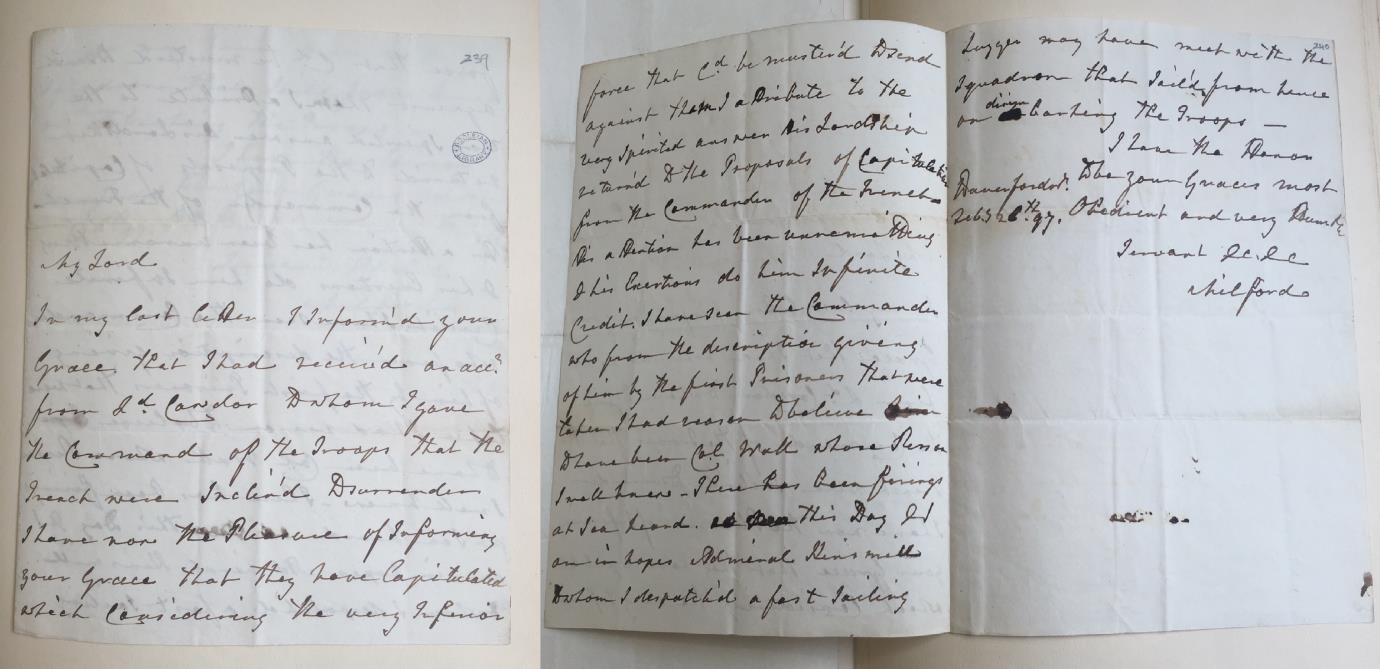from Adrian Kerrison, Rare Books
On the night of 22 February 1797, 1,400 French soldiers under the command of Irish-American Colonel William Tate disembarked from their ships and landed on the shores of Carregwastad Head in Pembrokeshire. This bold and audacious invasion was actually intended as a diversion to draw British forces away from a much larger planned French landing in Ireland in support of the Society of United Irishmen. It was also hoped that it would cause an uprising against the British government amongst the Welsh population.
Having successfully landed and taken up defensive positions, Colonel Tate and his force now faced John Campbell, 1st Baron Cawdor, and about 600 men from the local militias and yeomanry. Cawdor set up headquarters at the town of Fishguard with intentions to eventually attack the French. Despite outnumbering Cawdor’s forces by over two to one, French indiscipline resulted in the desertion of a large portion of the invasion force, and Tate believed that Cawdor had more men than he actually did. This may have been due to sightings of large groups of women in Welsh national dress, which from a distance could resemble the red uniforms of British soldiers.
In the course of these events one local woman became a Welsh folk hero. Jemima Nicholas, a local cobbler, is alleged to have approached twelve French soldiers armed only with a pitchfork, forcing them to surrender and marching them to Fishguard. While there is little contemporary evidence to support this, her deeds were recorded on her tombstone and she was referred to as ‘Jemima the Great’ in her burial record.
With his situation quickly deteriorating, Colonel Tate quickly attempted to negotiate terms for surrender ‘upon the principles of humanity’. Cawdor replied that due to the ‘superiority of the forces under [his] command which is hourly increasing’, he would only accept a full, unconditional surrender. Unaware that Cawdor was actually bluffing, Tate accepted on 24 February and was taken prisoner with his remaining troops.
‘The Battle of Fishguard’ as it came to be known, never really materialised to be a battle at all, and casualties were very light on both sides. The landings in Ireland were called off due to bad weather and the hope of a Welsh uprising proved to be unfounded. 22 February 1797 was to be the last time that mainland Britain was invaded.
The letters and print below come from the Lord Curzon collection of Napoleonic ephemera.

